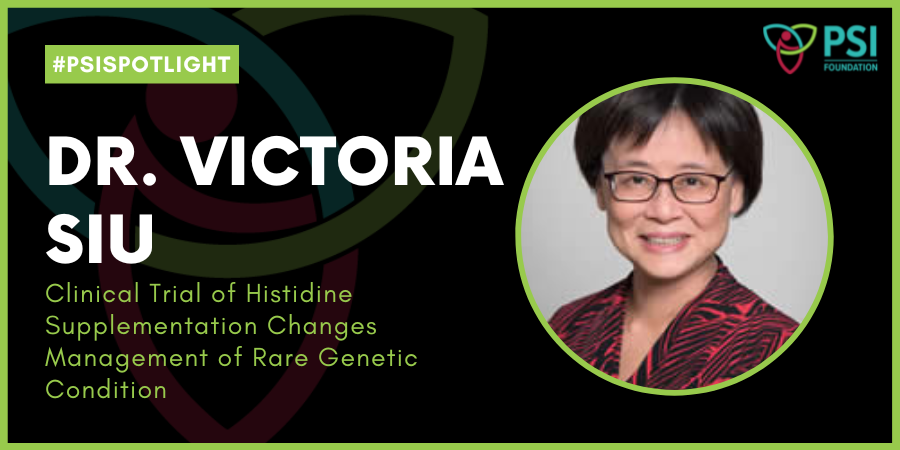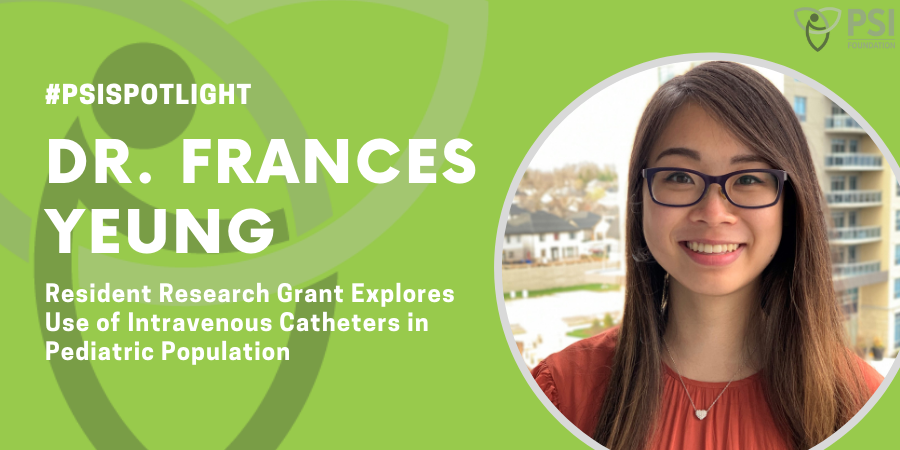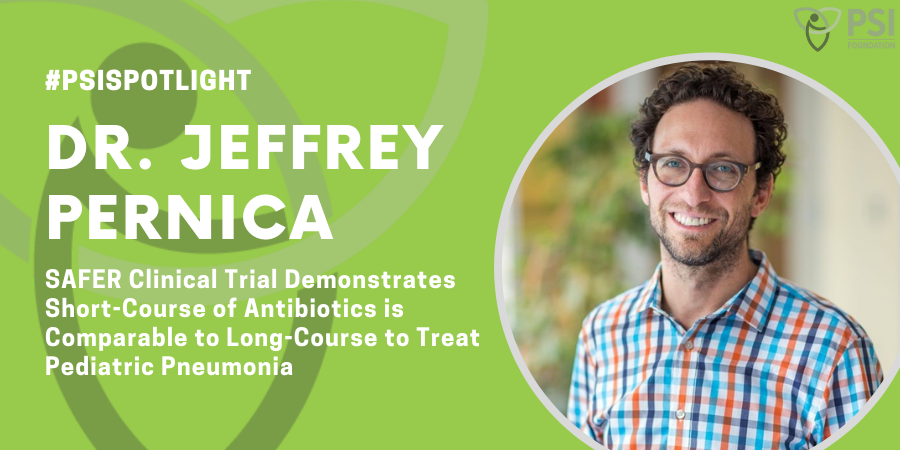A clinical trial funded by the PSI Foundation is changing the management of a rare genetic condition found in the Amish communities of southwestern Ontario. A research team led by Dr. Victoria Siu, a medical geneticist at London Health Science Centre and associate professor at Western University’s Schulich School of Medicine and Dentistry, found that histidine supplementation was effective in reducing the complications in children with the condition.
“The positive effects of histidine supplementation in patients with this condition open up the possibility of an inexpensive treatment to prevent loss of vision and hearing,” says Dr. Siu. “It’s very difficult to find funding for a clinical trial of a natural health product like histidine. We couldn’t have done this trial without PSI funding, and I’m very grateful.”
Dr. Siu began her career in London, Ontario, which is close to the majority of Ontario’s Amish and Mennonite communities, and she often sees patients from these communities as part of her practice.
In the early 2000s, she and her colleague, Dr. Tony Rupar, received funding from the PSI Foundation to lay the groundwork for a newborn and early childhood screening program in the Amish and Mennonite communities that would test for four treatable genetic disorders. In addition to helping identify children who could benefit from early treatment, the newborn screening program also helped Dr. Siu and other researchers examine the genetic conditions that affect this community.
“In a way, that grant was really seed funding for many other new discoveries,” she says. “The community, the public health nurses and midwives, started letting us know about other children with medical conditions, which enabled us to identify several new genes that caused some of these disorders in the community.”
More than 15 years after her first PSI grant, Dr. Siu received another PSI grant to examine a potential treatment for one such genetic disorder – HARS syndrome.
HARS syndrome is an extremely rare autosomal recessive genetic disorder, but it is much more common in the Amish community in southwestern Ontario where approximately one in five individuals in in the Amish community is a carrier of the gene and approximately one in 100 babies in the community are affected.
The HARS gene codes for an enzyme that links histidine to transfer RNA (tRNA), a process essential for protein translation. When this gene is mutated, the enzyme’s function is altered.
Affected children are often somewhat smaller than unaffected children, but are otherwise healthy and develop appropriately; however, when the child is infected with even common childhood viruses such as influenza or RSV, they often need hospitalization and can develop acute respiratory distress syndrome (ARDS). Following infection, their balance becomes unsteady, and their hearing and vision deteriorates. Historically, the mortality rate for affected children has been quite high due to ARDS. Children who do survive often need cochlear implants for their hearing and continue to lose their vision.
Children in histidine study stayed healthy through COVID-19 pandemic
With PSI funding, Dr. Siu and her research team examined 14 children with HARS ranging from one to 17 years old who were given a daily histidine supplement to determine whether it could be used to keep these children healthy and prevent further hearing and vision loss. Histidine is a relatively inexpensive supplement, costing around $100 a month for the oldest participants and much less for the younger children taking a lower dose.
Over the three-year study, the researchers monitored the children’s growth and overall health and periodically assessed the children’s vision and hearing.
The research team found that none of the children experienced any significant deterioration in their vision or hearing over the course of the study. And, importantly, the children also maintained overall good health during the study period, which took place during the COVID-19 pandemic.
The children were not vaccinated against COVID-19 and researchers found antibody levels in the blood indicating that they had been infected with SARS-CoV-2, yet none of the children were hospitalized.
“We saw that the children stayed healthy through this study period, and that was quite incredible to us because it was during the pandemic,” says Dr. Siu. “When these children had influenza, rhinovirus, RSV or any of those common viral illnesses, they have historically been hospitalized in the intensive care unit and needed to be ventilated, and some of them have died. We felt that for these children to stay healthy through COVID was really quite remarkable.”
With the study apparently showing the benefit of histidine supplementation in these children, management of HARS syndrome has already changed. The children are continuing to receive daily histidine supplementation and, when they are hospitalized with illness, they receive extra histidine and anti-inflammatory drugs and reduced fluids, all of which seem to reduce the risk of ARDS.
“Most clinical trials have big sponsors, and there’s really no place for a small trial like this. We also had additional costs for transportation and medical appointments because of the nature of working with this community,” says Dr. Siu. “The funding from PSI was very important and much appreciated as it allowed us to do work that will make a difference for these children.”



